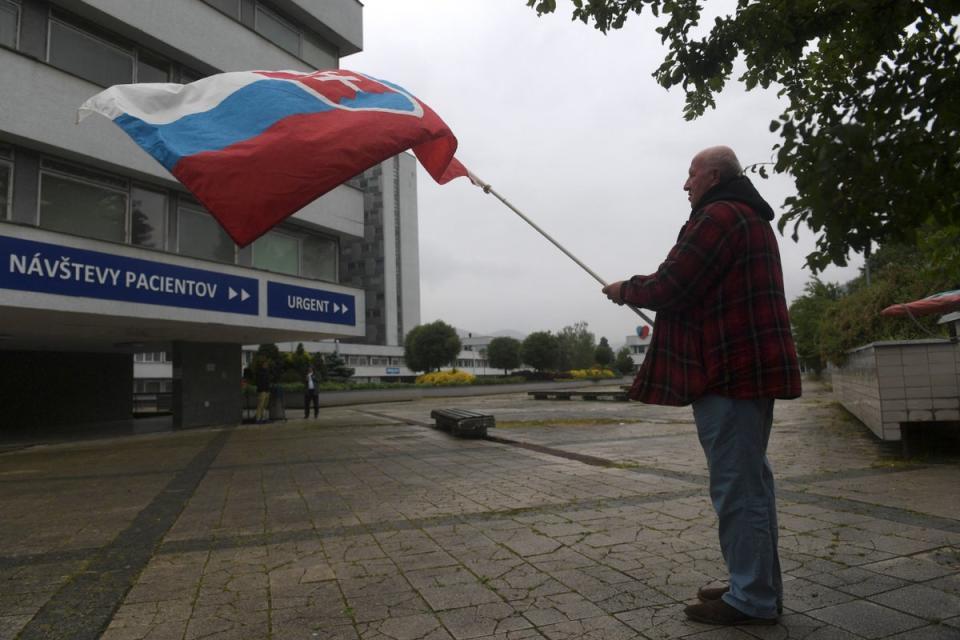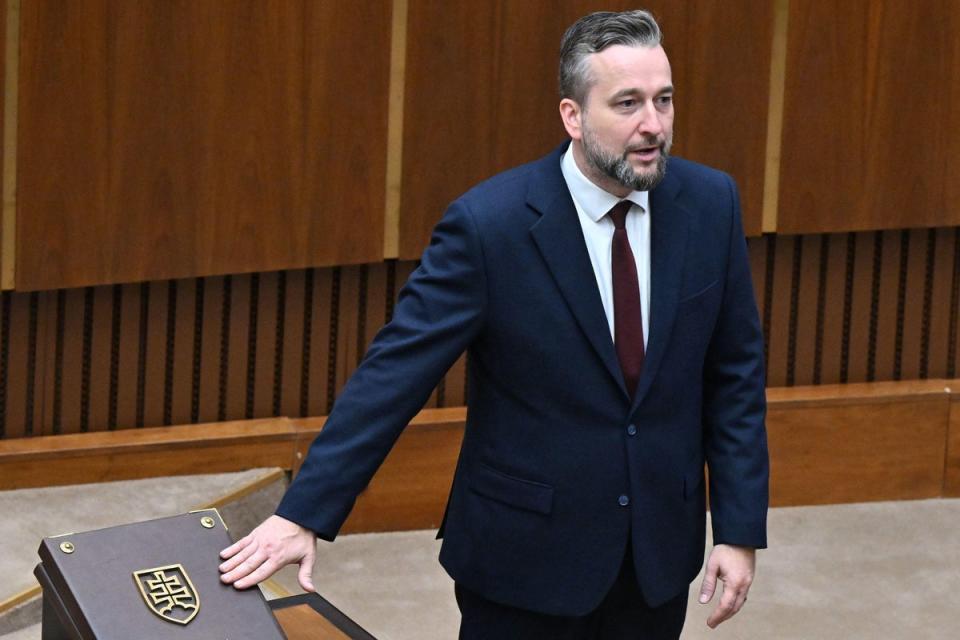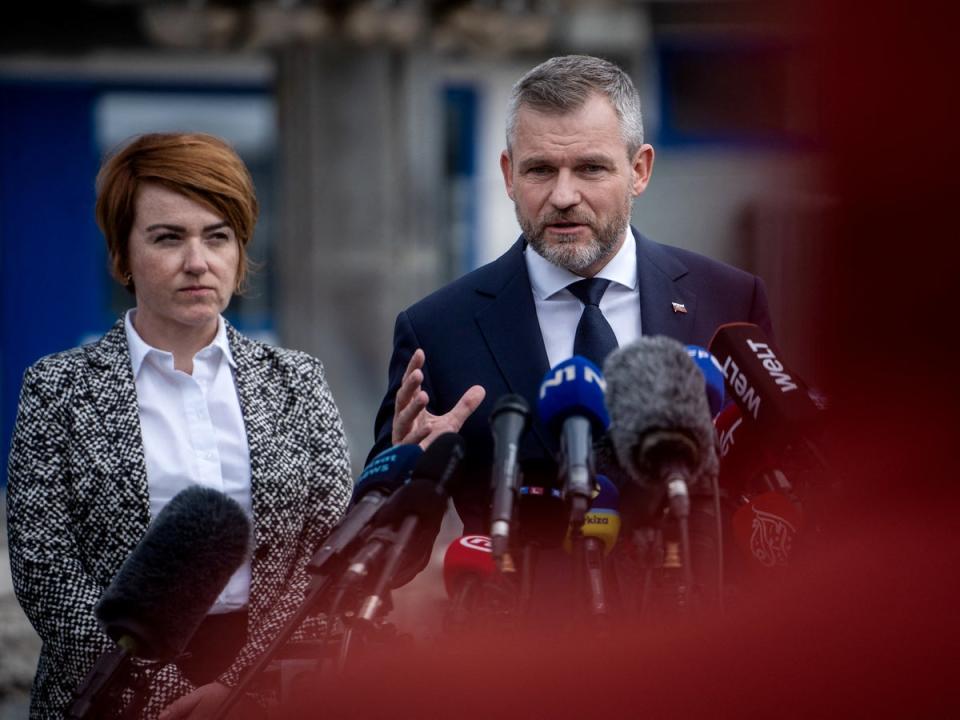Slovakia’s poisonous politics and the path to Robert Fico’s shooting
As Slovakian prime minister Robert Fico recovers from surgery having been shot five times at close range, critics of his ruling party are worried the attack could be used to widen the political faultlines in a country that has been on edge for months.
Mr Fico’s condition is stable but “serious” according to hospital officials, while a suspect has been charged with attempted murder and could face life imprisonment. Miriam Lapunikova, director of the University FD Roosevelt hospital in Banska Bystrica, where Mr Fico was taken by helicopter after he was shot, said he underwent a CT scan and is currently awake and stable in an intensive care unit. She described his condition as “very serious”.
“I think it will take several more days until we will definitely know the direction of the further development,” said defence minister and deputy prime minister Robert Kalinak, speaking at the hospital.
Interior minister Matus Sutaj Estok, in a statement, described the gunman as a “lone wolf” who is “not a member of any right-wing or left-wing radicalised party”.
But in the same breath he asked journalists to “reflect” on how they had covered Mr Fico’s policies, before insisting that the attack was politically motivated.
Mr Fico’s pro-Russia views – he has criticised the previous government’s military support for Kyiv – have contributed to deep divisions in the small European country that borders Ukraine. After his election victory last year, the new government immediately halted arms deliveries to Ukraine. Thousands repeatedly took to the streets across Slovakia to rally against Mr Fico’s pro-Russian and other policies, including plans to amend the penal code to eliminate a special anti-graft prosecutor and to take control of public media.
Mr Fico’s return to power – he is a three-time prime minister – has caused concern among his critics that he and his party will lead Slovakia away from its pro-Western course. He vowed to pursue a “sovereign” foreign policy, promised a tough stance against migration and non-governmental organisations, and campaigned against LGBT+ rights. Last month, the government approved a proposal to abolish the public broadcaster and replace it with a new body, sparking outrage among opposition parties who say the government will then have control of public radio and television.

Members of Mr Fico’s ruling SMER party, as well as more extreme figures from the far-right Slovak National Party (SNS) – part of the prime minister’s three-party coalition – have wasted no time in suggesting the attack was the result of political tension.
Lubos Blaha, the deputy speaker of parliament from the SMER party, issued a direct address to opposition politicians and the media.
“This is your fault,” he said. “I want to express my deep disgust at what you have been doing here for the last few years. You, the liberal media, the political opposition, what kind of hatred did you spread towards Robert Fico? You built gallows for him.”
Mr Blaha later claimed, without providing evidence, that the suspect accused of shooting the PM had been at events run by the opposition Progressive Slovakia (PS) party. “We [ruling coalition MPs] are the biggest next targets,” he said.

Another deputy speaker, Andrej Danko from SNS, blamed the attempted assassination on independent media. “Are you happy now?” he asked. “I still can’t believe that someone in society would be willing to cross that line.”
He then referred to some journalists as “disgusting pigs” and said his party saw the attack as the start of a political war. “I believe that with Robert Fico we’ll handle the situation, but there will be some changes here,” he added.
Media freedom has been the subject of extensive discussion in Slovakia in recent weeks as Mr Fico’s government pushed the controversial proposal forward to replace the public broadcaster RTVS.
Journalists now fear the populist prime minister’s crackdown on independent media outlets could worsen after this attack.
The country’s media signed a common online statement condemning the attack on Mr Fico as “the path of hatred, which we cannot allow to take over Slovakia, because it will send us to the darkest place on the map”.

They added: “We appeal to politicians not to divide our society any further, and not to immediately start looking for guilty parties. Now is the time to come together.”
Slovakia’s outgoing liberal president, Zuzana Caputova, joined her successor and Mr Fico ally, Peter Pellegrini, to make a joint address on Thursday to try and calm tensions. This came despite interior minister Mr Estok claiming that the “perpetrator’s decision [to try to assassinate Mr Fico] was born closely after the presidential election”.
“We are standing here together because we want to send a signal of reconciliation in this tense moment,” Ms Caputova said. “We’re one country, one nation, and along with our national minorities we form a single human community.
“[This] attack … is first and foremost a great human tragedy, but also an attack on democracy.”


